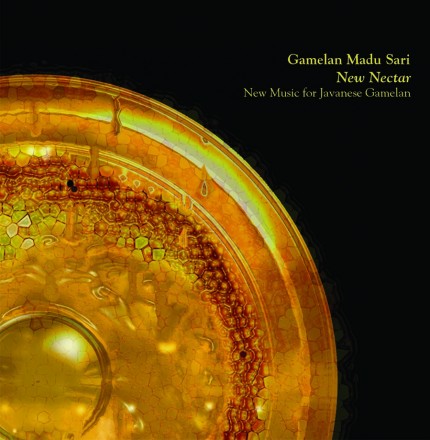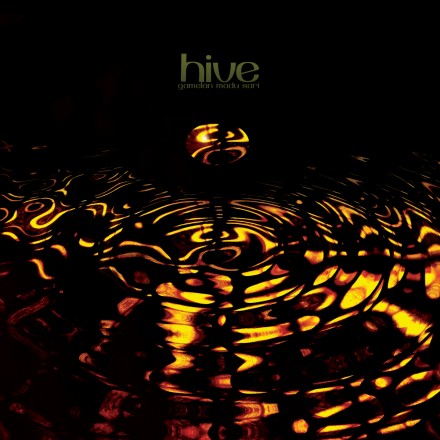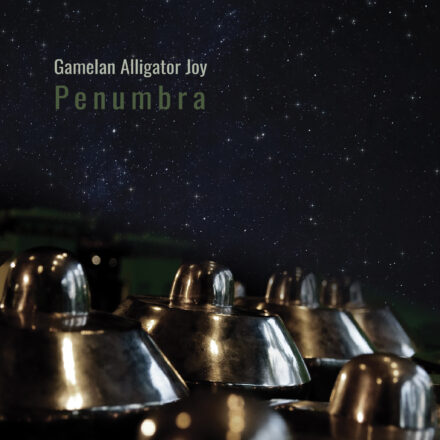Gamelan Madu Sari
New Nectar
SGL 2404-2The percussion-based Javanese gamelan orchestra is one of the world’s great musical traditions. Here five Vancouver composer-performers bring their experience in this and other forms of music — Western classical, new music, jazz, Vietnamese and Balinese musics, electroacoustic composition, and improvisation — extending the tradition in ways of fascinating beauty.
Founded in 1986, Gamelan Madu Sari (“The Essence of Honey”) has performed traditional and new music for gamelan as well traditional Javanese dance, dance drama, shadow play, and contemporary multimedia works. For its first record the Gamelan has selected compositions created on it by four composers who have also been active as performers in the group over the years, and by jazz/improv pianist Paul Plimley. Two sets of gamelan instruments are represented, and each work takes a novel approach to form, with a unique play of instrumental colours. Kenneth Newby’s “Dreams He is a Ball of Fire… Or a Hummingbird” includes spoken text, choral singing, and interlocking lines of rhythmically charged counterpoint, all in celebration of the birth of his son. Its archetypal text and ritual mood are characteristic of Newby’s music, which is concerned with the natural world, the meeting of cultures, “deep listening” and transcendence (Ecology of Souls, 1993; Sirens, 1997; Newby was also prominent in the ethno-ambient groups Trance Mission and Lights in a Fat City). Michael O’Neill’s “Lessons of the Garden” uses hocketing between the two gamelan tuning systems, slendro and pelog, to produce an expanded mode. Partly inspired by Ravel and minimalism, it swells and flows. O’Neill also plays and composes new music for Scottish bagpipes, and “Lessons” begins with an eerie prelude for droning plastic chanters and clanging clusters of bronze.
Chris Miller’s two pieces are a study in contrasts. “Thinly, roundly,” a collaboration with the Vancouver-based Vietnamese duo Khac Chi, combines the liquid tones of two genders (Javanese resonating metallophones) with the bending melismas of two dan bau (Vietnamese monochords). Its melodies and textures build in subtle transformations from a contemplative opening dialogue towards a dancing, unifying conclusion. “Whining horses eat more HEY doncha no” is a deadpan adaptation of certain traditional gamelan structures to something perhaps closer to avant-garde pointillism: spare and quirky, it seems to question its very nature. Mark Parlett’s “Intimate Distance” is probably the densest composition on the record; its layers of instruments and a vocal duo combine in unpredictable ways in search of some elusive new harmony between the individual self and the world’s being. Paul Plimley’s “Born Again Needle Dancers” brings a jazz sensibility, wordless vocals, group improvisation, and an ingenious polyrhythmic and tonal conception to his exploration of the gamelan’s resources. Plimley’s interest in non-western traditions has also notably resulted in duets with South Indian percussionist Trichy Sankaran, Ivory Ganesh Meets Doctor Drums.
Each piece in its own way furthers the dialogue between East and West, developing the expressive potential of the gamelan, not just as a source of sensuous, intriguing timbres but also as a deep tradition with its own informing ethos and set of musical values (for example, freedom of individual expression within a complex and highly controlled social organization of sound). New Nectar is a major contribution to this ongoing cross-cultural experiment; it can equally be appreciated for its inclusive approach to forging a new music of substance and delight beyond categories.
***1/2 “Meditative, often surprising, it’s never less than interesting, and often deeply absorbing…” – Chris Nickson, Allmusic.com
*** “Well performed and recorded…an interesting and distinctive CD.” – Maria Mendonça, Songlines Magazine
“An elegant CD…These works make for excellent listening, and will stand in time as important and inspiring works for contemporary gamelan.” — Randy Raine-Reusch, Musicworks
“…excellently executed and produced…if you’re open-minded there’s much to discover. — Robert Kaye, Global Rhythm


